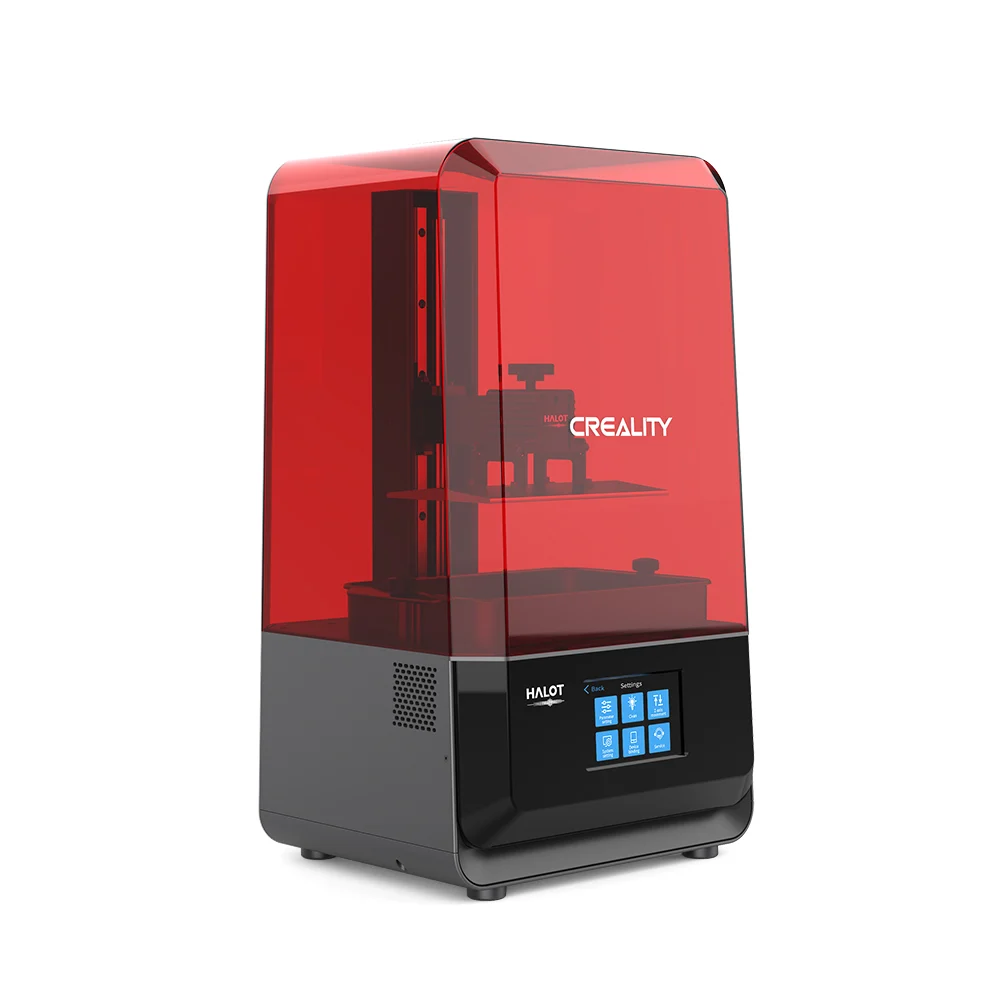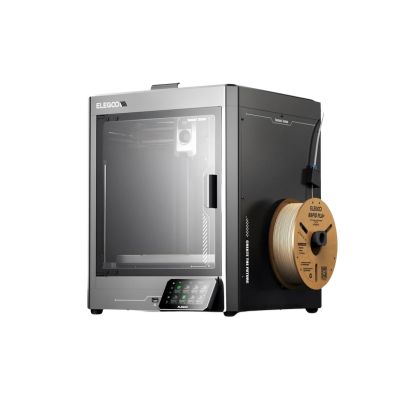Compare Halot Lite vs Centauri Carbon
Comparison between the best 3D printers
Choose the best 3D printer at the best price. The cheapest 3D printers are here.
Buy a 3D printer here with 3D Fila.
 |
 |
|
| Model | Halot Lite |
Centauri Carbon |
| Printing Material | Resin | Filament |
| Buy Resin for Creality 3D Halot Lite | Buy Filament forElegoo Centauri Carbon | |
| Estimated price | $400,00 | $500,00 |
| Manufacturer | Creality 3D | Elegoo |
| Release Year | 2021 | 2025 |
| Print Volume [mm] | 192x120x200 | 256x256x256 |
| Printer Size [mm] | 330x301x572 | 500x500x600 |
| Weight [kg] | 10,6 | 17,5 |
| Power Loss Recovery | NO | YES |
| Maximum Resolution [mm] | 0,01 | 0,1 |
| Processor | ||
| Display | Display touchscreen 5'' | Touchscreen 4,3'' |
| Power Supply | 350 W | |
| Connectivity | SD / USB | WiFi, SD, USB |
| Operating systems | Windows, Mac, Linux | Windows, Linux e Macbook |
| Date of registration in the system | 2022-11-04 | 2025-02-10 |
| Release date | 2021 | 2025 |
| Extra features | Crealitys Halot Lite printer stands out in the mid-size resin 3D printing segment, with a build volume of 192 x 120 x 200 mm and 50 micron resolution. It offers a monochrome LCD for fast and durable printing, and an upgraded light source that ensures over 80% uniformity across the print bed. It includes Wi-Fi connectivity for remote control and updates, an ARM Cortex CPU for efficient performance, and is compatible with Halot Box and Lychee slicing software. It also has an activated carbon filter to reduce odors. | The Elegoo Centauri Carbon is a CoreXY 3D printer with an enclosed structure, direct drive extruder, and hardened steel components for abrasive materials. It features automatic bed leveling, a touchscreen, a filament cutting system, and an elongated nozzle designed to reduce clogs. It offers Wi-Fi connectivity for remote file transfer and runs on a Klipper-based firmware, providing advanced control and precise adjustments. |
| Support for multiple colors and materials (AMS and CFS) | NO | NO |
Notes * |
||
| Cost-benefit | 8 / 10 | 8 / 10 |
| Hardware | 1.2 / 10 | 6 / 10 |
| Tela | . | . |
| Print volume | 3 / 10 | 4 / 10 |
| Performance | 9 / 10 | 4 / 10 |
Conclusion |
| In comparing the Creality 3D Halot Lite and the Elegoo Centauri Carbon, both printers offer unique advantages that cater to different user needs and preferences. The Halot Lite stands out with its affordability, making it an attractive option for budget-conscious users seeking quality in the mid-size resin printing market. Its excellent print resolution and features like the monochrome LCD and efficient light source make it suitable for detailed prints. However, the Halot Lite has a smaller print volume and lacks power loss recovery, which may limit its utility for larger projects. On the other hand, the Centauri Carbon, with its larger print volume and advanced features such as automatic bed leveling and a robust CoreXY structure, is better suited for users looking for versatility and higher performance in 3D printing. Its capability to handle various materials thanks to its hardened steel components further enhances its appeal. While it has a higher price tag, the additional features and enhanced connectivity options, including Wi-Fi, make it a compelling choice for more demanding applications. Ultimately, the choice between these two models should be guided by individual priorities: the Halot Lite is ideal for budget-conscious users needing precise detail in smaller prints, whereas the Centauri Carbon is designed for those seeking durability, advanced capabilities, and greater print volume at a higher investment. Each printer holds its own value, depending on the specific needs of the user. |

